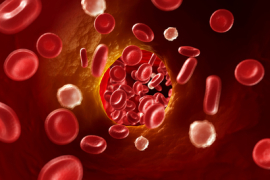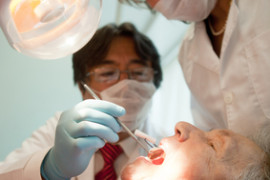Historically, the mouth was thought to be separate from the rest of the body. Thanks to research over the last 10 years, the medical and dental communities are embracing the fact that what happens in the mouth does not stay there.
Research released this month out of the University of Pennsylvania illustrates this fact. A common gum disease bacteria has been shown to block the body’s defense system and yet still promotes the body’s inflammatory response.
The study found that one of the most virulent oral pathogens, P. gingivalis, is able to disarm the immune system. In 2010, research published in Science Signaling showed us that this same bacterium is able to convert white blood cells from destroyers into carriers.
George Hajishengallis, this most recent study’s lead researcher and professor at the Penn School of Dental Medicine, performed this research. As a report on the research in Science Daily notes, “Work by Hajishengallis’s group and collaborators had previously identified P. gingivalis as a ‘keystone pathogen’” that plays a role in systemic inflammation and disease.
This is a double-edged sword. While the body is trying to attack P. gingivalis, this bacterium is simultaneously able to block the immune cells trying to kill it, while still allowing these cells to cause inflammation.
P. gingivalis plays a very key role in many inflammatory diseases, and this research shows us one of the reasons why. It has already been shown that when a person has P. gingivalis present, he or she is 13 times more likely to suffer from a heart attack—nearly twice the risk of a heavy smoker.
Historically, it was hard to understand how periodontal disease could impact cardiovascular disease. Yet when one looks at the underlying components of oral biofilm and cardiovascular disease, it becomes evident that a pathogen such as P. gingivalis can have a huge impact on the heart.
To put it simply, the immune system is supposed to block intruders—including viruses, bacteria, etc. Yet, P. gingivalis is able to side-step this attack by blocking the immune system while simultaneously elevating and enhancing the body’s response with inflammation through toll-like receptors.
The astonishing fact is P. gingivalis is one of the 10 destructive known periodontal pathogens in oral biofilm that have an influence on systemic disease. It has been estimated that approximately 70% of adults between 40 and 50 are above threshold for these pathogens.
P. gingivalis shows up in a large percentage of our population and has a huge impact on both oral and systemic disease. It is imperative to address it from both medical and dental perspectives.
Source: Gum disease bacteria selectively disarm immune system, study finds



